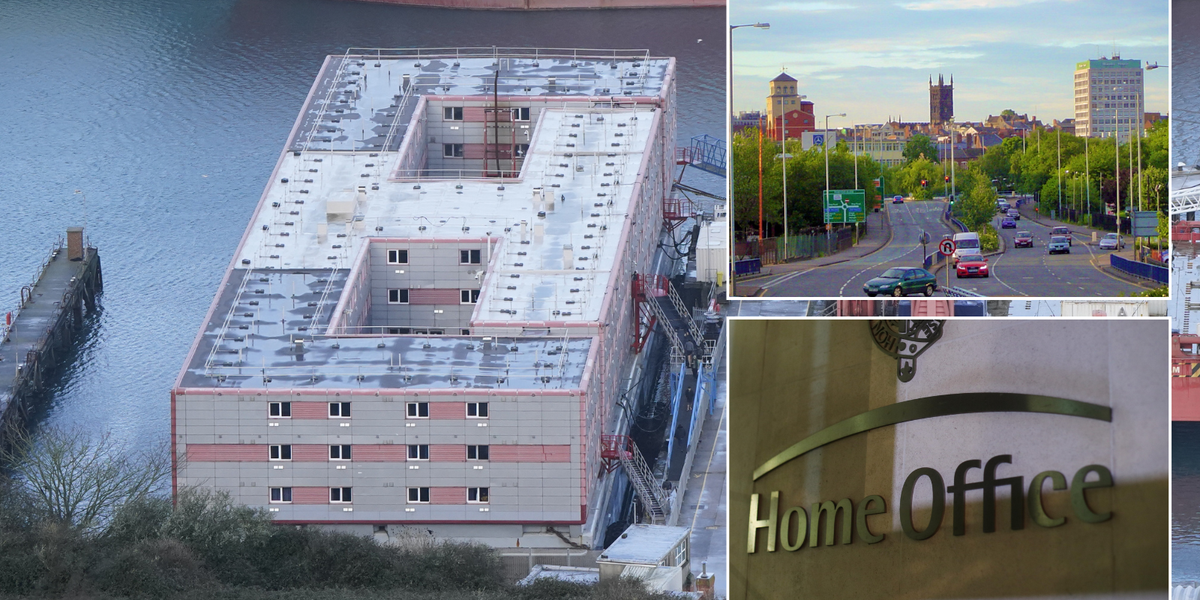The Transition from Bibby Stockholm: A New Chapter for Asylum Seekers
In a significant shift in the UK’s approach to asylum accommodation, the Home Office has begun moving around 400 asylum seekers from the Bibby Stockholm barge in Portland, Dorset, to alternative accommodations in the Midlands. This decision marks a pivotal moment in the ongoing debate surrounding the treatment and housing of migrants in the UK, particularly as the government aims to close the controversial vessel by the end of the year.
The Bibby Stockholm Barge: A Controversial Solution
The Bibby Stockholm, a floating barge that has served as temporary accommodation for asylum seekers, has faced considerable criticism since its inception. Critics argue that housing vulnerable individuals in such a setting is inadequate and inhumane. The barge was initially introduced as a cost-effective solution to the growing number of asylum seekers arriving in the UK, but it has become emblematic of the broader challenges facing the country’s asylum system.
With the Labour government’s recent decision to phase out the use of the Bibby Stockholm, the focus has shifted to more traditional forms of accommodation. The Home Office is now actively seeking to provide more suitable housing options for those awaiting asylum decisions.
Relocation to the Midlands: A New Home for Asylum Seekers
As part of the transition, many of the asylum seekers from the Bibby Stockholm will be relocated to a hotel in Wolverhampton, which is currently undergoing modifications to accommodate single male migrants. Additionally, council accommodation in Worksop will also be utilized for this purpose. This move is part of a broader strategy to ensure that asylum seekers are housed in environments that are more conducive to their well-being and integration into society.
The decision to relocate these individuals comes amid growing concerns about the adequacy of existing facilities. The Home Office is reportedly considering the opening of additional asylum hotels to address the increasing demand for housing, as the number of migrants continues to rise.
Addressing the Backlog: Labour’s Asylum System Overhaul
The Labour government is facing the daunting task of clearing a backlog of nearly 120,000 asylum seekers who are still awaiting decisions on their claims. This backlog has been exacerbated by a surge in Channel crossings, with a reported 12 percent increase this year alone. In 2024, approximately 29,867 individuals have arrived in the UK via small boats, highlighting the urgent need for a comprehensive and effective asylum system.
Labour’s commitment to overhauling the asylum process is aimed at streamlining operations and ensuring that individuals receive timely decisions on their claims. The move away from the Bibby Stockholm is a clear indication of the government’s intent to prioritize humane treatment and adequate accommodation for those seeking refuge in the UK.
The Future of Asylum Accommodation in the UK
As the Home Office prepares to close the Bibby Stockholm by January, the focus will undoubtedly shift to how the UK can effectively manage its asylum system moving forward. The transition to hotel accommodations and council housing represents a significant change in strategy, one that aims to provide a more stable and supportive environment for asylum seekers.
However, the challenges remain substantial. With increasing numbers of individuals seeking asylum and a backlog of claims to address, the government will need to implement robust solutions to ensure that all individuals are treated with dignity and respect. The success of these initiatives will depend on the collaboration between local councils, community organizations, and the Home Office to create a system that is both efficient and compassionate.
Conclusion
The relocation of asylum seekers from the Bibby Stockholm to accommodations in the Midlands marks a critical juncture in the UK’s approach to asylum housing. As the government seeks to close the barge and address the backlog of claims, the emphasis on humane treatment and adequate facilities is more important than ever. The coming months will be crucial in determining how effectively the UK can navigate the complexities of its asylum system while ensuring the well-being of those who seek refuge within its borders.
